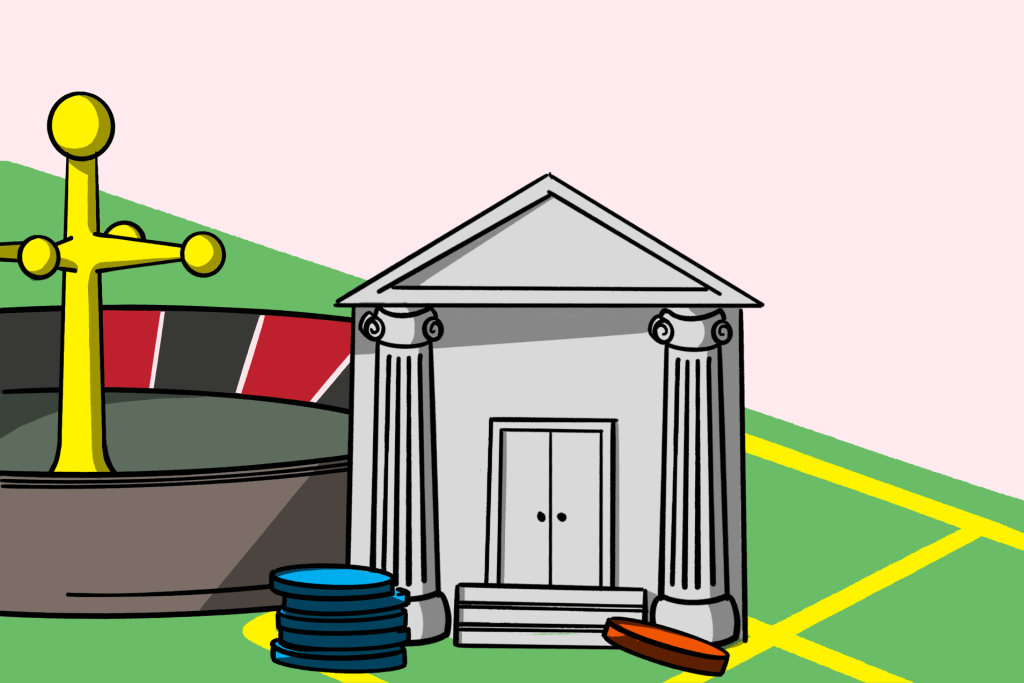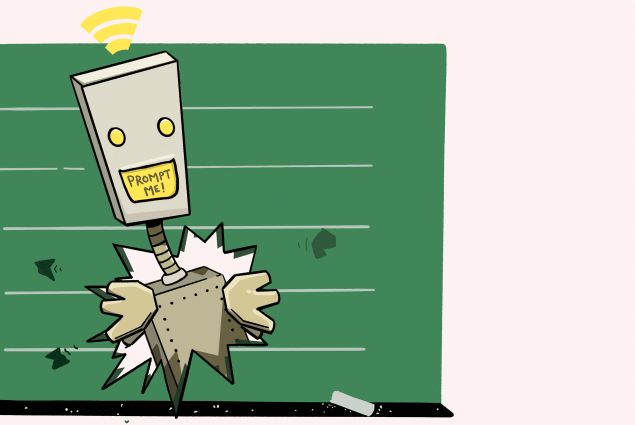In the neverending right-wing-led campaigns against social progress, public schools are frequently targeted. And there’s a reason: while battered and underfunded, these institutions are still symbolic of the actualization that we are more than just individual agents or even the sum of our parts; that differences needn’t divide; that a fairer, kinder future for all of us, starting with our kids, is always worth committing to, investing in and being collectively responsible for.
Compassion. Collaboration. Respect. Empathy. Responsibility.
To some, these principles are, apparently, terrifying.
And that fear is the tide that public education advocates and progressives continue to hold off, while fighting for a more just and a fairer world for all of us. Even for those who actively undermine the idea that we can do better for each other.
No one is saying this work is easy. But the difference between progress and change is intentionality. Otherwise, we could rely on gravity – or maybe the seasons – to bring us public pharmacare. Or $10/day child care. Or public schools that meet the pedagogical and social needs of kids and communities right across the country; that treat educators and education workers like the experts that they are; that give kids the tools to push back against oppression; and – most importantly – that recognize that we must continue to do better for kids and communities who have traditionally been underserved by the very public systems we still must fight to protect.
Public education provides remarkable opportunities to bring people together to mobilize in pursuit of a common goal – both on the left and right of the political spectrum. And no wonder – we’re talking about what we want for our kids, for our communities, and for the future.
We’re also talking about our own recollections (good and bad) of our own experiences with the education system. And for those of us who are parents, it can be a triple whammy: our kids’ experiences, our own experiences, and how the two come together in the ever-evolving relationships we build with our children as they mature.
Perhaps it shouldn’t be a surprise that the “parental rights” debates resonate, even among some people who ordinarily would be able to spot a right wing dog whistle at 100 metres. We are much more susceptible to fear-based arguments – no matter how ridiculous or racist or transphobic or misogynistic, it seems – when they centre our children.
As a graduate of the Ontario public education system who, like many parents, is constantly navigating the process of watching and encouraging my kids as they develop into adults, take risks, make mistakes, and amaze me with their self-awareness while driving me around the twist with their inability to find the dishwasher….I’ve been doing a lot of self-reflection in the wake of the so-called parental rights’ debates.
These days we are more connected than ever – and that comes with a number of unintended consequences. “I’ll call when I get there” is now obsolete. For many of us, working and learning from home reinforced and extended normal parental oversight. The response to “It’s 9:00 – do you know where your children are?” is likely to be “where they’ve been for the past 14 months – right beside me.”
Getting ahold of someone “anytime, anywhere” may mean convenience for the getter – but something very different for the gotten.
As my eldest starts university and my youngest starts high school, I’ve had to readjust my own parental expectation settings of concepts like freedom and privacy, while reminding myself what it was like to grow up without “find my phone” doubling as a tracking device when I hadn’t checked in for a while, and that I too hid my diary and didn’t tell my parents absolutely everything that happened at school that day (including when I definitely should have).
While frustrating and sometimes infuriating, it is normal and healthy for kids to push back, to make space for themselves, to challenge their parents, make choices that we wouldn’t want them to make and grapple with issues we want to support them on but that they need time to come to us with. It should not be considered a personal slight for a child to want to establish boundaries about music or friendships or bodily autonomy or sexuality or gender identity.
And it certainly shouldn’t be seen as evidence of public education or government overreach or a queer or trans “agenda”.
As the rhetoric is weaponized by politicians and decisionmakers eager to capitalize on fear and ignorance (and the callous and dangerous disregard for scapegoating marginalized and vulnerable kids), I’m keeping three things in mind to try and help me maintain a sense of equilibrium.
The friend who told me, as a very new mom, that he had learned through having kids of his own that “parenting is a long process of learning how to let go.”
The daycare provider who, after giving me the Coles Notes version of something hilarious my eldest (then 2 years old) had done that day, reminded me that I should “let her tell [me] herself….she’s also entitled to her privacy.”
The “Question Authority” bumper sticker on my parents’ fridge when we were growing up.
As I write, 2023 has concluded, 2024 has begun, and the work continues. All my thanks to the authors who gave so much of their time, expertise, and passion for public education in this issue of Our Schools / Our Selves.
And thank you to all of you for your work in defending and celebrating a public education system that better meets the needs of kids and communities from coast to coast to coast, and allows no one – particularly the most vulnerable – to be treated as collateral damage.
Note to readers
As we enter a new year, with new challenges, we will be making a change at Our Schools / Our Selves and we want you to understand our decision-making process. Charities across the sector are experiencing financial challenges and, unfortunately, the CCPA is no exception. We are facing a double whammy of inflation and the downturn in individual contributions after COVID-19 forced economic shutdowns across the country.
As you know, for the past few years Our Schools/ Our Selves has been included with the January/February and July/August Monitor, and it’s been a wonderful partnership that has brought popular and accessible education content to all our readers and our online audiences.
However, production costs (postage, printing, paper etc.) have increased by 68 per cent since 2020 alone.
We have made the difficult decision to produce the Monitor on a quarterly basis in order to cut costs, and to move to a fully digital model for Our Schools / Our Selves. We will be working with our partners across the country to ensure the widest possible audience for our educational content so that Our Schools / Our Selves remains the vibrant, accessible and engaging platform that you all appreciate. And we will continue to promote each issue on our blog and website, and through our social media channels and e-newsletters.
As always, we value your support, and your engagement, and we look forward to hearing from you.







